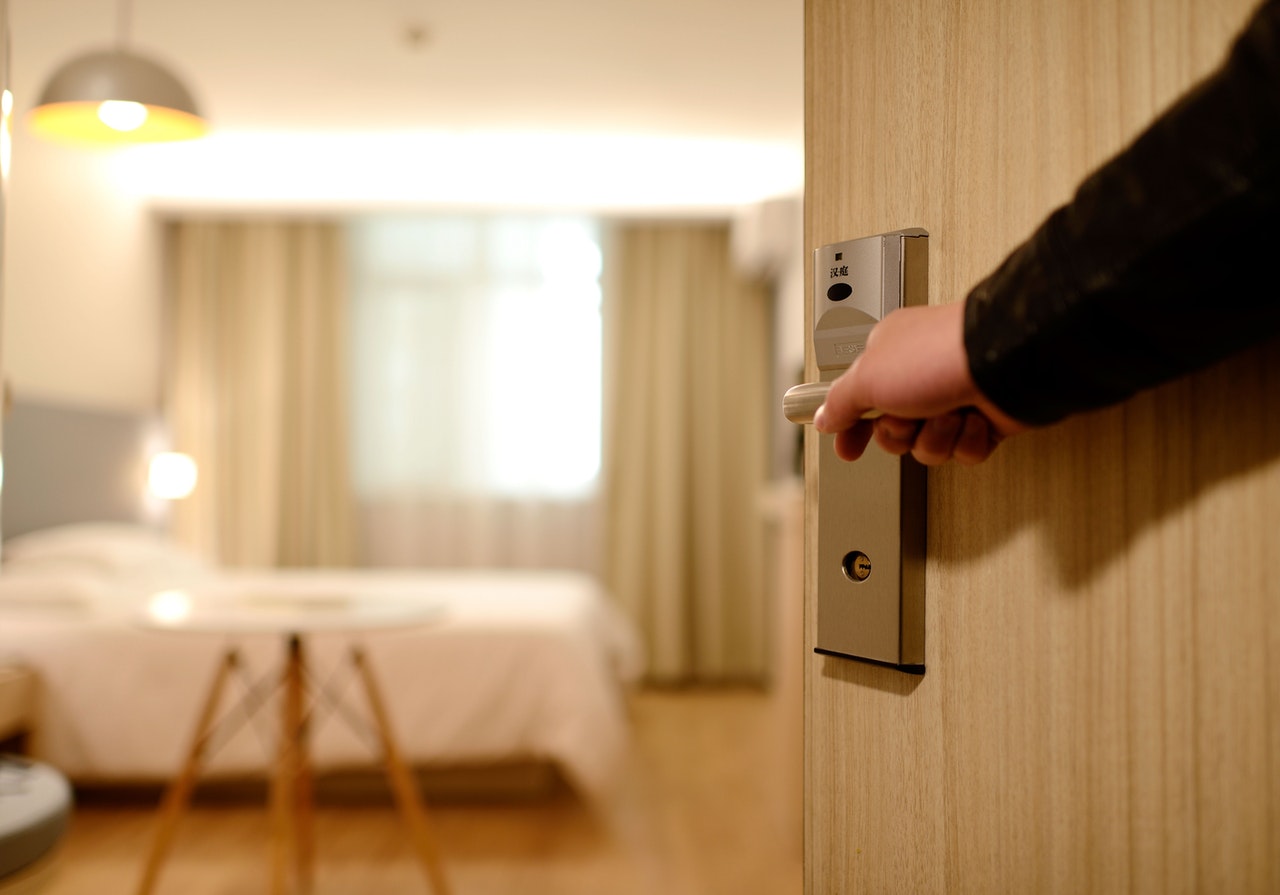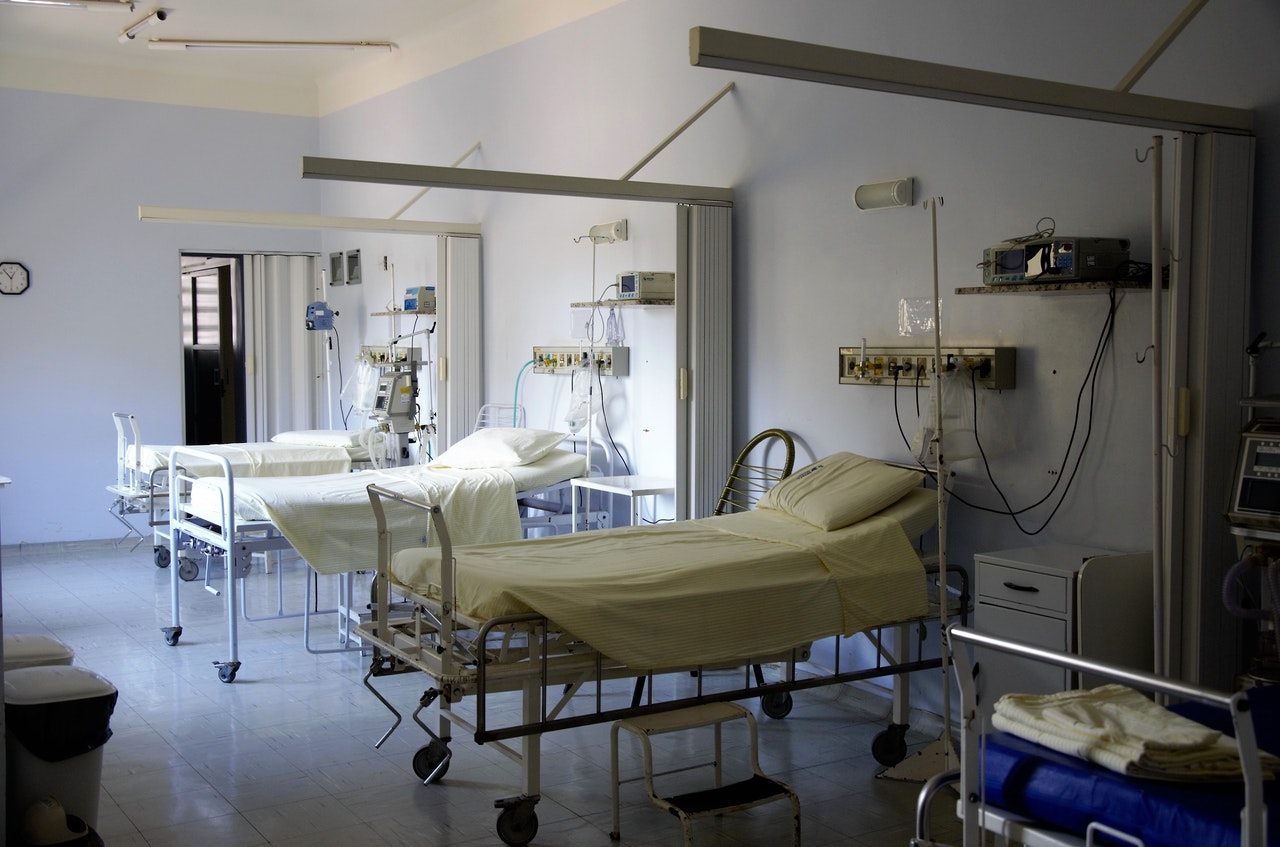Table of Contents
Contrary to common beliefs, bed bugs are not exclusive to your home alone. In fact, some of us can get the pest from the workplace and then bring it back home. In just a few months, your home will be suffering from a massive bed bug infestation. Knowing how to protect yourself from bed bugs at work is a hack everyone should know, especially if you’ve dealt with an infestation before.
Bed bugs at work
Bed bugs are sneaky creatures. They can hide themselves on the tiniest crevices you can ever imagine. They can hitch a ride on your clothes, shoes, or bag. Once you get home, they can get off and take harborage in your mattress and other pieces of furniture.
Remember that workplaces are public places. Everyone in your workstation can bring the pest and transfer it to another person. The process is simple for these little insects.
The good thing is you can always practice caution to reduce the risk of bringing home an infestation. Although bed bugs are nocturnal insects, they will get out of their hideouts once they sense that a food source is nearby. That source of food is any warm-blooded creature, humans, for example.
The following are some of the common spots in workplaces where bed bugs may harbor:
- Mattresses on hotels
- Office chairs that are not cleaned for long
- Lockers and employee quarters
- Cracks and crevices on workstations
- Break rooms and employee lounges
- Plush furniture
- Office carpeting
Virtually any tiny spot in your office can be the hideout of bed bugs. The key here is being vigilant and reporting the presence of the critters.
Industries prone to bed bugs
Some workplaces are more likely to harbor bed bugs than others. This is due to the fact that some industries house more potential harborages of the pest. The following are the top three industries or workplaces where bed bugs seem to be a never-ending problem.
Accommodation like hotels, hostels, etc.
The hotel industry in the whole world spends millions of dollars year by year to eradicate bed bug infestations. Some experts even joke that bed bugs keep hoteliers awake at night.
Bed bugs thrive in mattresses and within sleeping areas. Since hotels are basically hundreds of sleeping spaces, bed bugs find it an ideal place to thrive.
Also, a lot of people use the same room day in and day out. A guest can bring bed bugs to the room, which will go unnoticed for weeks. Also, bed bugs can stick to the employees’ clothes, which, in turn, they will bring home.
According to the veteran pest control company Orkin, a hotel will spend an average of $6,300 per bed bug infestation. And to give you a bigger picture, hotels will suffer for up to seven bed bug infestation incidents within five years on average.
It makes sense why hotels are willing to spend a fortune just to get rid of the pesky bed bugs. Bad reviews and negative word of mouth can kill their business.
If you’re working on hotels, it’s important to know some ways on how to prevent bringing bed bugs at home.
Healthcare facilities
Yes, even healthcare facilities are not spared from the threat of bed bugs. Like hotels, hospitals, and clinics use bedding that different people use at any given time. And just like how hotels are keen to remove the pest, healthcare facilities should act fast upon the discovery of the pest. If not, it will take a toll on their reputation as a clean and sanitary facility.
Healthcare workers are also at risk of bringing the bugs at home.
Office buildings
Believe it or not, but bed bugs can mire even corporate offices. In fact, a Bugs Without Borders survey in 2015 showed that about 45% of pest control workers have dealt with at least one case of bed bugs in office buildings.
Office chairs, lobbies, sleeping quarters, and other areas where employees stay can be a hideout of bed bugs. It’s also possible that the bed bug came from packages, especially for workplaces dealing with deliveries and logistics.
Unknowingly, employees can bring the bed bugs home. Some may experience the bites firsthand while working. Such cases must be reported right away to perform proper extermination.
Bed bug prevention tips for workplaces
Bed bug infestations must be considered a cause of concern. This pest can multiply fast and cause a massive problem at work. The following are some of the tips to prevent getting bed bugs from work.
✔️Know what a bed bug looks like
Prevention is only possible if you know what you’re looking for. If you’re assigned for room service, always keep a hawk-eye when changing sheets. The moment you spot a bed bug, report it to your supervisor right away. Don’t wait for the guests to discover it themselves.
Proper education and training for employees will help in terms of identifying pests. This is important, especially if your workplace has experienced a prior infestation.
Remember that it’s not just the custodial staff’s job to keep the workplace clean. The employees who use it should do their part, too.
✔️Go straight to the bathroom at home
Instead of putting your things down, go straight to the bathroom to remove your clothes. Put it straight to the wash so any potential bed bug will die.
Limiting your contact to any surface at home, especially your mattress, will reduce the chance of hitchhiking bed bugs upon arriving from work.
✔️Keep your belongings away
As much as possible, keep all your things in a locker, so it doesn’t get in contact with any employees or people around. If there’s an ongoing infestation in your workplace, I recommend sealing your possessions inside a plastic bag or placing it on a sealed plastic container.
✔️Use a bed bug repellent spray
If you’re worried about getting bed bugs from work, one of the best solutions is to use a bed bug repellent spray. There are permethrin sprays in the market that are safe to apply to the clothes. You can use this before wearing your work clothes. You can also apply some on your belongings if contamination isn’t an issue.
One of the most trusted options nowadays is the Sawyer Products Premium Permethrin Spray. This is effective in repelling bugs, mosquitoes, and other insects. Each spray can last for up to six washings, so you don’t have to re-apply every day.
Sawyer Permethrin Spray is odorless and safe while being 100% as effective as DEET. It also comes in an easy-spray bottle that you can bring at work for emergency re-application if need be. It’s also safe for dogs if applied properly.
✔️Don’t bring home a lot of stuff from work
Are you planning to bring home those used towels from the hotel? Think twice before doing so. It could be a vehicle for bed bugs to reach your home. Not to make you paranoid, but it’s worth washing the towels well before taking it to your house.
As much as possible, minimize the items you take home from work. You should also follow a sanitation process that will kill the bed bugs. For example, if you bring home clothing or fabric articles from work, you can heat it in the dryer first. The bugs will die at a temperature higher than 120F for 30 minutes.
✔️Clean office clutter
For offices with recurring cases of bed bug infestation, decluttering is a smart move. This way, you can remove any potential harborage of bed bugs. Also, regular office chair cleaning is necessary, so it will not harbor the pest. As you know, swivel chairs somehow resemble your mattress. You spend hours sitting on it, and it has a plush material where the pest can squeeze itself in.
For large offices, contracting a cleaning service is a smart choice. These companies have the right tools and cleaning products to eliminate the bed bug population in your office. For larger infestations, you must seek the help of a pest exterminator.
✔️Observe regular pest control
Nowadays, most offices and workplaces have scheduled pest control treatments to combat the proliferation of various pests in their workplace. If you own a business, you should consider this as a must-have. Even though you can’t see the pests right away, these tiny creatures can brew an infestation that will cost you more than a yearly pest treatment.
Your responsibility as an employee
As much as your employer plays a big part in controlling a bed bug infestation in the workplace, you should also do your share. Always be vigilant and report any sign of an infestation.
Also, if the management implemented measures to combat the spread of bed bugs, you must follow suit. If you know that you have bed bugs at home, have it treated right away. You should also seal your things you’ll bring at work so the pest won’t spread in the workplace or other employees.
Keep your trash bin cleaned up and always observe proper hygiene at work. Aside from reducing the risk of bed bug infestations, such a thing will make your workplace more conducive for tasks.
Frequently Asked Questions
Q: What should I do if I find bed bugs in my workplace?
A: It’s important to report the presence of bed bugs in the workplace. If not detected right away, bed bug infestation can worsen and affect your business or organization’s image. This is very critical for companies offering hospitality services.
Q: Are bed bugs contagious at work?
A: Bed bugs spread like a virus in the workplace. They can hitchhike on your clothes or body, which will get off once you arrive home. Remember that bed bugs are attracted to warm bodies, so humans are their main target. Besides, bed bugs feed on human blood, and they prefer to stay close to their food source.
Q: Can I sue my job/workplace for having bed bugs?
A: If your workplace didn’t remove the bed bugs, which resulted in severe damage on your part, you could actually file a complaint. For example, if the bed bug at work triggered your allergies, you can file for workers comp. Third-party claims can also be made if a family member of an employee suffered from bed bugs that the latter got from work.
Q: Do nursing homes have to report the presence of bed bugs?
A: Staff and employees of nursing homes should act right away once the presence of bed bugs is discovered. If the infestation caused health issues to the resident, the nursing home should notify the family members accordingly. Proper action should also be taken to remove the bed bugs from the premises.
Q: Can bed bugs stay in my suitcase all day?
A: Yes, a bed bug can survive in your suitcase for a day or two. Once you put your suitcase down in your bed or bedside table, the bug can hop off and look for a better spot. They will usually gravitate on mattresses because it’s where their source of food spends a lot of time at night.
Final words
Knowing how to protect yourself from bed bugs at work will prevent you from bringing the critters at home. It will also save your organization from the hassle of a pest infestation. Remember, a pest infestation can taint the reputation of a company and compromise its employees’ productivity.





